
Filter News
Area of Research
News Type
News Topics
- (-) Computer Science (14)
- (-) Cybersecurity (6)
- (-) Environment (40)
- (-) Exascale Computing (3)
- (-) Frontier (3)
- (-) Fusion (9)
- (-) Microscopy (11)
- (-) Neutron Science (10)
- (-) Polymers (5)
- 3-D Printing/Advanced Manufacturing (13)
- Advanced Reactors (2)
- Artificial Intelligence (9)
- Big Data (12)
- Bioenergy (23)
- Biology (27)
- Biomedical (13)
- Biotechnology (7)
- Buildings (10)
- Chemical Sciences (9)
- Clean Water (7)
- Composites (3)
- Coronavirus (6)
- Critical Materials (2)
- Energy Storage (13)
- Grid (7)
- High-Performance Computing (11)
- Hydropower (2)
- Isotopes (13)
- ITER (1)
- Machine Learning (10)
- Materials (9)
- Materials Science (15)
- Mathematics (5)
- Mercury (4)
- Nanotechnology (6)
- National Security (17)
- Nuclear Energy (16)
- Partnerships (2)
- Physics (16)
- Quantum Computing (1)
- Quantum Science (5)
- Security (7)
- Simulation (8)
- Summit (2)
- Transportation (12)
Media Contacts
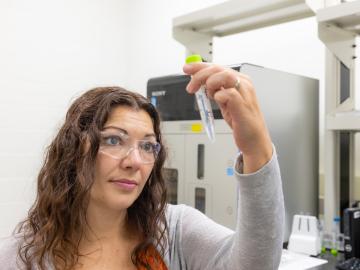
Carrie Eckert applies her skills as a synthetic biologist at ORNL to turn microorganisms into tiny factories that produce a variety of valuable fuels, chemicals and materials for the growing bioeconomy.
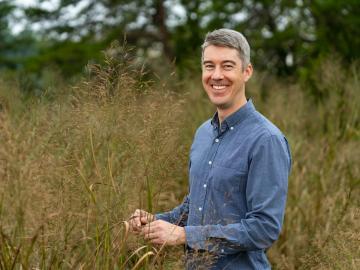
For ORNL environmental scientist and lover of the outdoors John Field, work in ecosystem modeling is a profession with tangible impacts.

An international problem like climate change needs solutions that cross boundaries, both on maps and among disciplines. Oak Ridge National Laboratory computational scientist Deeksha Rastogi embodies that approach.

Moving to landlocked Tennessee isn’t an obvious choice for most scientists with new doctorate degrees in coastal oceanography.
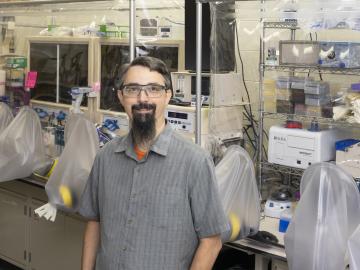
As a metabolic engineer at Oak Ridge National Laboratory, Adam Guss modifies microbes to perform the diverse processes needed to make sustainable biofuels and bioproducts.
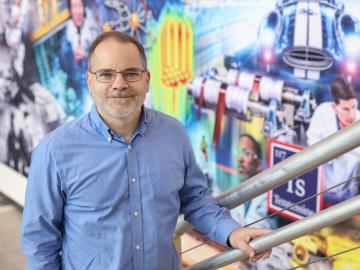
David Sholl is director of the new ORNL Transformational Decarbonization Initiative, working to elevate the lab’s prominence in decarbonization science and technology. Credit: Genevieve Martin, ORNL/U.S. Dept. of Energy.

As rising global temperatures alter ecosystems worldwide, the need to accurately simulate complex environmental processes under evolving conditions is more urgent than ever.
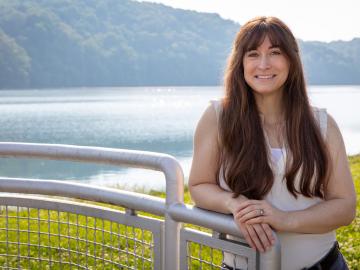
Carly Hansen, a water resources engineer at Oak Ridge National Laboratory, is rethinking what’s possible for hydropower in the United States.
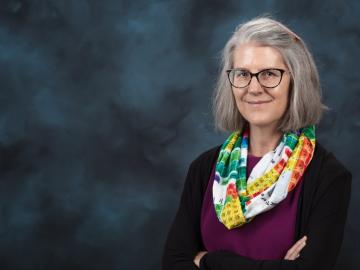
Deborah Frincke, one of the nation’s preeminent computer scientists and cybersecurity experts, serves as associate laboratory director of ORNL’s National Security Science Directorate. Credit: Carlos Jones/ORNL, U.S. Dept. of Energy
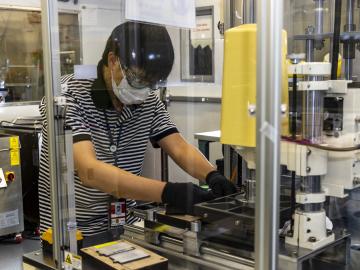
In his career focused on energy storage science, Jianlin Li has learned that discovering new ways to process and assemble batteries is just as important as the development of new materials.


